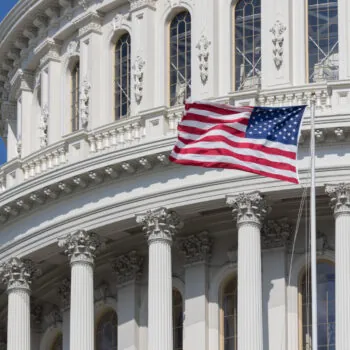19 April, Washington, DC: Today organizations released a letter to the G7 and G20 finance ministers and central bank governors attending this year’s International Monetary Fund and World Bank Spring Meetings. The letter calls on authorities to use precautionary, ex-ante approaches to address growing climate-related financial risks.
Story
In proceedings this week, financial authorities and IMF staff discussed experiences in addressing past financial crises, as well as the recent pandemic. Emerging risks posed by non-bank financial institutions and private equity were also identified. Authorities noted the utility and cost effectiveness of taking steps in advance of – ex ante – a financial crisis, as compared to relying on ex-post, or after the fact solutions.
The letter, sent today by E3G, Public Citizen and The Sunrise Project, notes the limited effectiveness of current financial sector policy toolkits to address climate-related systemic risks to the financial system. Current tools, including capital requirements, are grounded in backward looking data that does not sufficiently account for the non-linearity and unpredictability of physical risks, particularly when coupled with transition-related risks faced by the financial sector, according to the letter.
Authorities’ apparent disagreements about policy approaches, which recently spilled into public view, most likely reflect different political tensions, especially in the United States. The letter urges G7 and G20 to rise above these disagreements, and move quickly in the direction of ex-ante, precautionary policy approaches that could avert financial system and economic sector climate-related financial shocks. This approach also has the benefit of promoting economic resiliency needed for a transition to net zero, as well as economic growth opportunities presented by the transition.
Quotes
Elizabeth Jacobs, Sustainable Finance Specialist at E3G, said:
“Headlines from Washington, DC this week reflected financial policymakers’ focus on the war in Ukraine, public bank reforms, and sovereign debt relief for emerging societies. Authorities have it within their power to take more precautionary measures on climate-related financial risks now. Such action would promote a smooth transition to net zero and the financial stability needed to address these issues.”
David Arkush, Director of Public Citizen’s Climate Program, said:
“US financial regulators are far behind their foreign peers in addressing the grave, urgent threats of climate-related financial risk. Internationally, they should show leadership and help advance progress, not export the obstruction and dysfunction of current US politics to delay or carve out dangerous exceptions to sound financial regulation.”
– ENDS –
Available for comment
Elizabeth Jacobs (EN), Sustainable Finance Specialist
m: +1 202-921-8187 | elizabeth.jacobs@e3g.org
Notes to editors
For further enquiries email press@e3g.org or phone +44 (0)7783 787 863.


